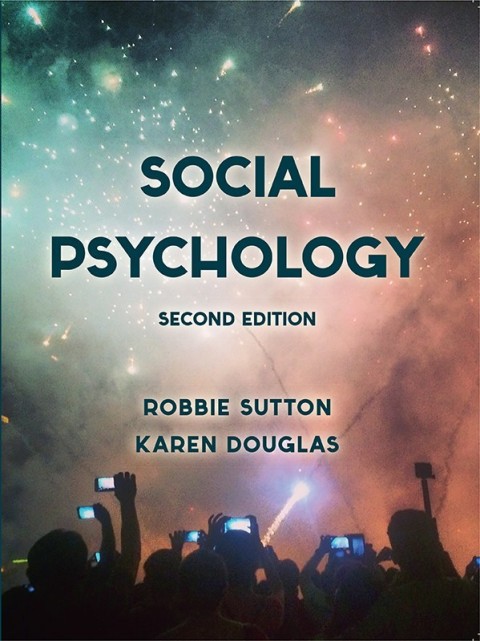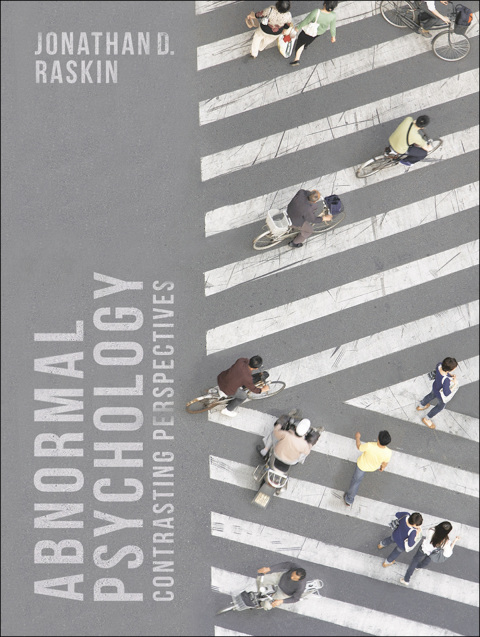Description
Efnisyfirlit
- Cover
- Title Page
- Copyright
- Dedication
- About the Authors
- Brief Contents
- Contents
- List of figures
- List of tables
- Preface
- Authors’ acknowledgements
- Your guide to the book and online resources
- 1. The discipline of social psychology
- What is social psychology?
- Where does social psychology come from?
- Doing social psychological research
- CRITICAL FOCUS The 1970s ‘crisis’ in social psychology
- The tools of social psychology
- ETHICS AND RESEARCH METHODS Correlation versus causation
- Issues in conducting social psychological research
- Basic and applied research
- SOCIAL PSYCHOLOGY IN THE REAL WORLD Social psychology at work in the classroom
- Cultural issues
- Research ethics
- Social psychology and other disciplines
- Dissemination of social psychology
- Critical thinking in social psychology
- PART 1 THINKING AND FEELING
- 2. The social self: understanding ourselves
- Self-knowledge and the self-concept
- Self-awareness
- Theories of self
- CRITICAL FOCUS Ego depletion
- Self-esteem
- SOCIAL PSYCHOLOGY IN THE REAL WORLD The narcissism ‘epidemic’ and its consequences
- Self-presentation
- How accurate is our self-knowledge?
- ETHICS AND RESEARCH METHODS Why social psychologists cannot just ask people why they do things
- Motivated social cognition and the self
- Culture and the self
- 3. The social perceiver: understanding the social world
- Causal attributions
- The naive scientist approach
- Two famous ‘errors’ in attribution
- Applications of attribution theory
- Person perception
- CRITICAL FOCUS Are physical and psychological warmth related?
- SOCIAL PSYCHOLOGY IN THE REAL WORLD The real-life importance of first impressions
- Heuristics and biases in social cognition
- Other biases and errors in social cognition
- The nature of social cognition
- ETHICS AND RESEARCH METHODS Experimental control and replication
- 4. The social judge: attitudes, emotions and behaviour
- What are attitudes?
- SOCIAL PSYCHOLOGY IN THE REAL WORLD Political attitudes
- Attitude formation
- Implicit and explicit attitudes
- ETHICS AND RESEARCH METHODS The Implicit Association Test (IAT)
- Attitudes and behaviours
- Cognitive dissonance
- Embodied social cognition
- CRITICAL FOCUS Embodied social cognition
- Emotions and social judgement
- PART 2 RELATING
- 5. Communication
- Language and its rules
- ETHICS AND RESEARCH METHODS The logic of conversation in survey design
- Language, culture and cognition
- Language, personality, identity and gender
- Language and stereotyping
- Nonverbal communication
- CRITICAL FOCUS The evolution of facial expressions
- Conversation and discourse
- Communication and technology
- SOCIAL PSYCHOLOGY IN THE REAL WORLD The power of words: detecting lies in crime, politics and online
- 6. Persuasion
- When does persuasion work?
- SOCIAL PSYCHOLOGY IN THE REAL WORLD How to get people to stop smoking
- How does persuasion work?
- What can people do to persuade others?
- When persuasion does not work
- CRITICAL FOCUS How do people understand persuasion?
- ETHICS AND RESEARCH METHODS Subliminal messages
- 7. Close relationships
- Interpersonal attraction
- CRITICAL FOCUS Sexual strategies theory
- Theories of attraction
- Love and romantic relationships
- Attachment and bonding
- Maintaining relationships
- SOCIAL PSYCHOLOGY IN THE REAL WORLD Same-sex relationships: ‘the love that dare not speak its name’
- When relationships end
- ETHICS AND RESEARCH METHODS Student samples in relationships research
- PART 3 BELONGING
- 8. The social group
- What is a group?
- Formation of groups
- Group structure
- The flexibility of social norms
- CRITICAL FOCUS Gender roles: a minefield of science and politics
- Fitting in to groups
- SOCIAL PSYCHOLOGY IN THE REAL WORLD Impostors within groups
- What do groups do for us?
- ETHICS AND RESEARCH METHODS Ethical considerations in ostracism research
- 9. Social influence
- Classic studies of social influence
- ETHICS AND RESEARCH METHODS Ethics and the Milgram studies
- CRITICAL FOCUS The Stanford Prison Experiment and the psychology of ‘evil’
- When are people influenced?
- Why are people influenced?
- Who is influenced?
- Resisting social influence
- Majority and minority social influence
- SOCIAL PSYCHOLOGY IN THE REAL WORLD The suffragette movement
- 10. Group behaviour
- Social facilitation
- Social loafing
- Deindividuation
- CRITICAL FOCUS Emergent norm theory: a theory of crowd behaviour
- SOCIAL PSYCHOLOGY IN THE REAL WORLD Road rage: losing it behind the wheel
- Group decision making
- ETHICS AND RESEARCH METHODS Studying groupthink
- Leadership
- 11. Intergroup relations
- Bases of stereotypes, prejudice and discrimination
- CRITICAL FOCUS The minimal group paradigm
- Stereotyping, prejudice and discrimination in different intergroup contexts
- ETHICS AND RESEARCH METHODS Ageist stereotypes and cardiovascular events
- SOCIAL PSYCHOLOGY IN THE REAL WORLD Homophobia
- Vicious cycles in intergroup relations
- PART 4 APPLYING
- 12. Improving intergroup relations
- Tokenism and affirmative action
- SOCIAL PSYCHOLOGY IN THE REAL WORLD Tokenism and the election of Barack Obama
- Intergroup contact
- CRITICAL FOCUS Reservations and unanswered questions about contact
- Categorization-based approaches
- Values-based approaches
- The media and real-world conflict
- ETHICS AND RESEARCH METHODS Reducing real-world intergroup conflict
- Intergroup apology and forgiveness
- Communication and negotiation
- Collective action
- 13. Understanding and controlling aggression
- The human animal: biological bases of aggression
- SOCIAL PSYCHOLOGY IN THE REAL WORLD Alcohol and aggression
- The social animal: social causes of aggression
- ETHICS AND RESEARCH METHODS Measuring aggression in the laboratory
- The tribal animal: the group dimension of aggression
- CRITICAL FOCUS Violence against women
- 14. Altruism and justice
- Altruism
- CRITICAL FOCUS Bystander intervention and the tragic case of Kitty Genovese
- Social dilemmas
- Encouraging cooperation
- The social psychology of justice
- ETHICS AND RESEARCH METHODS Eliciting distress in studies of the ‘just world’
- SOCIAL PSYCHOLOGY IN THE REAL WORLD Economic inequality and economic crisis
- 15. Social psychology and you
- The wisdom of social psychology
- Social psychology and you
- Student Projects
- References
- Subject index
- Author index






Reviews
There are no reviews yet.